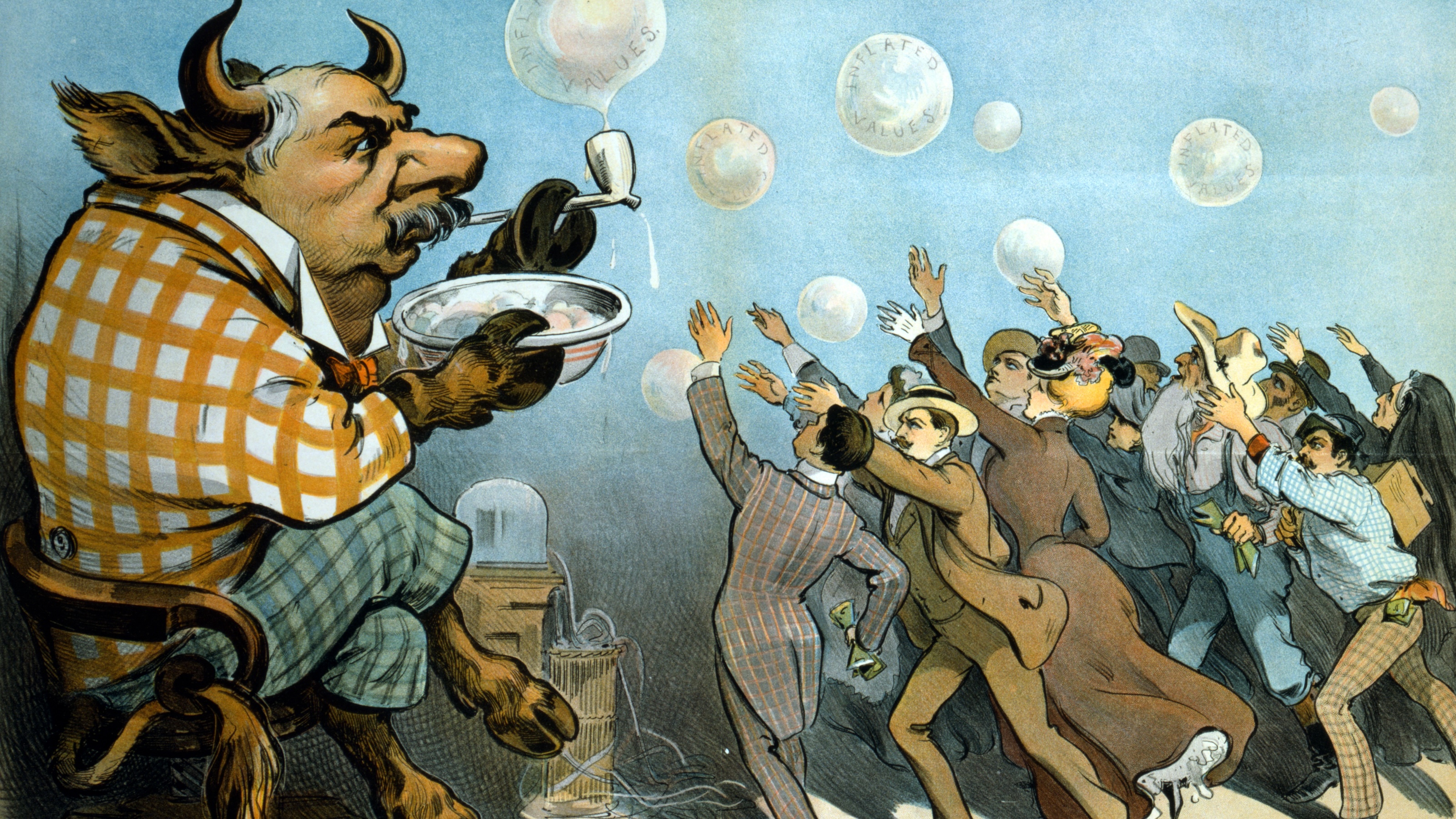Why do some societies seem more conformist than others? And how can all societies avoid the kind of foolish conformity that leads to financial bubbles and panics?
Question: Why do some human societies seem more conformist than others?
Iain Couzin: Well, I'm not an expert on human society and I would defer to, you know, anthropologists and social scientists on this. But, you know, it is certainly clear from some classic work in psychology that, you know, that we have a great capacity of influencing each other and not perhaps being fully aware, you know, the fact that we are influenced.
I'll give you a sort of a toy example, there was a classic study by a guy called Stanley Milgram here in New York City in the '60's, and he was interested in how people sort of copy each other within crowds. And, for example, they'll copy the gaze of other individuals, so he had some students looking up at a window and it was just a silhouette of a couple in the window, nothing much to look at. And what he was interested in was, you know, as he walked past, will you look up also. And of course, the more people are looking up, the more people will stop and look up. And so here we have what we call positive feedback. You know, the fact that you will tend to copy the behavior of other individuals, because, you know, you want to check something out. You use that social information within a variety of contexts.
But there are other examples, you know, such as the Mona Lisa, which is an incredibly famous painting, why is it so famous? Well, it's probably not because it's the best painting in the world, it's probably because of a series of historical events that, you know, that led to its fame and then the more famous it is, the more famous it becomes and so on. And people like Duncan Watts and Matt **** at Princeton have described this as the Justin Timberlake effect--no offense, Justin, but there can be, you know, even sort of an average song can actually believed to be better than it is and that can lead to sort of this positive feedback and people are buying lots of albums. And so there is this very interesting feedback effect that tends to occur. And what they discovered, which is quite fascinating, is that, you know, when you're choosing music, the very worst songs, and the very best songs, it doesn't really matter about this feedback. You know, the very best songs, you would've chosen them anyway, the very worst songs, well, even with feedback, you know it's wrong. But for this large spectrum in the middle, people are very strongly influenced by what they believe others think about that music and will actually change their own preferences based upon what they think others think, even if that information is incorrect.
Question: Does blind conformity threaten human survival?
Iain Couzin: Well, just like in animal groups, blind conformity is almost never a good thing. You know, animals have actually tuned their behavior to have adaptive conformity in a way that they will tend to conform when it pays for them to conform. And in actual fact, having a diversity of responses turns out to be very important. So I was just reading a paper recently about innovation, about how animals can solve problems and even in small birds, like high sparrows, having a larger group allows them to have a sort of a better sweet of different types of personalities and behaviors within the group, which enables the group as a whole to sort of solve problems more readily. And of course, in human society, this is, you know, incredibly important and, you know, the types of specialization and generalization of skills are really interesting within societies. And of course, we can start building structure, you know, high **** or multi-level structure within our societies as well, so in addition to having this kind of self-organized behavior that's kind of distributed intelligence, we can also, you know, harness other aspects. And so we're not as prone to these kind of errors as we could be, but of course, there are multiple examples in history of societies really going quite heavily down a distorted path. And so, perhaps, you know, the animals who have evolved to behave within these large societies are less susceptible to such behaviors.
Question: What insights does your research offer into financial bubbles and panics?
Iain Couzin: Yeah, I think that in general, the understanding of sort of complex adaptive systems is becoming increasingly influential in terms of understanding markets and in understanding banking and in understanding how people within these organizations behave, because again, there is a social, a type of social feedback and to sort of emphasize that, you know, we haven't evolved to deal with information coming at these very high rates. And typically, you know, when you're having to make very fast decisions, those decisions tend to be less accurate, on average, and this can lead to sort of a mass sort of deciding factor in the wrong direction sometimes. And so perhaps it’s no surprise that in this sort of modern society when everything is fast, fast, fast, that sometimes you get these cascades of error and very large mistakes being made.
And so I think in general, understanding how communications work and how feedbacks work and how sort of network structure and topologies work in understanding how our own society is a complex system, can indeed shed great light on how these things function.
Recorded on December 15, 2009
Interviewed by Austin Allen





